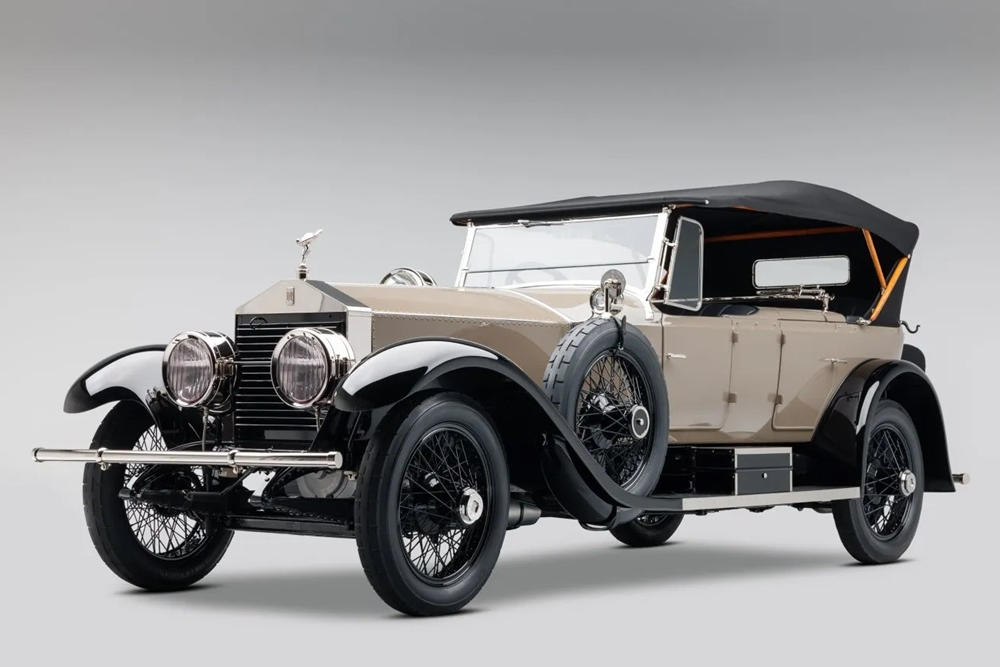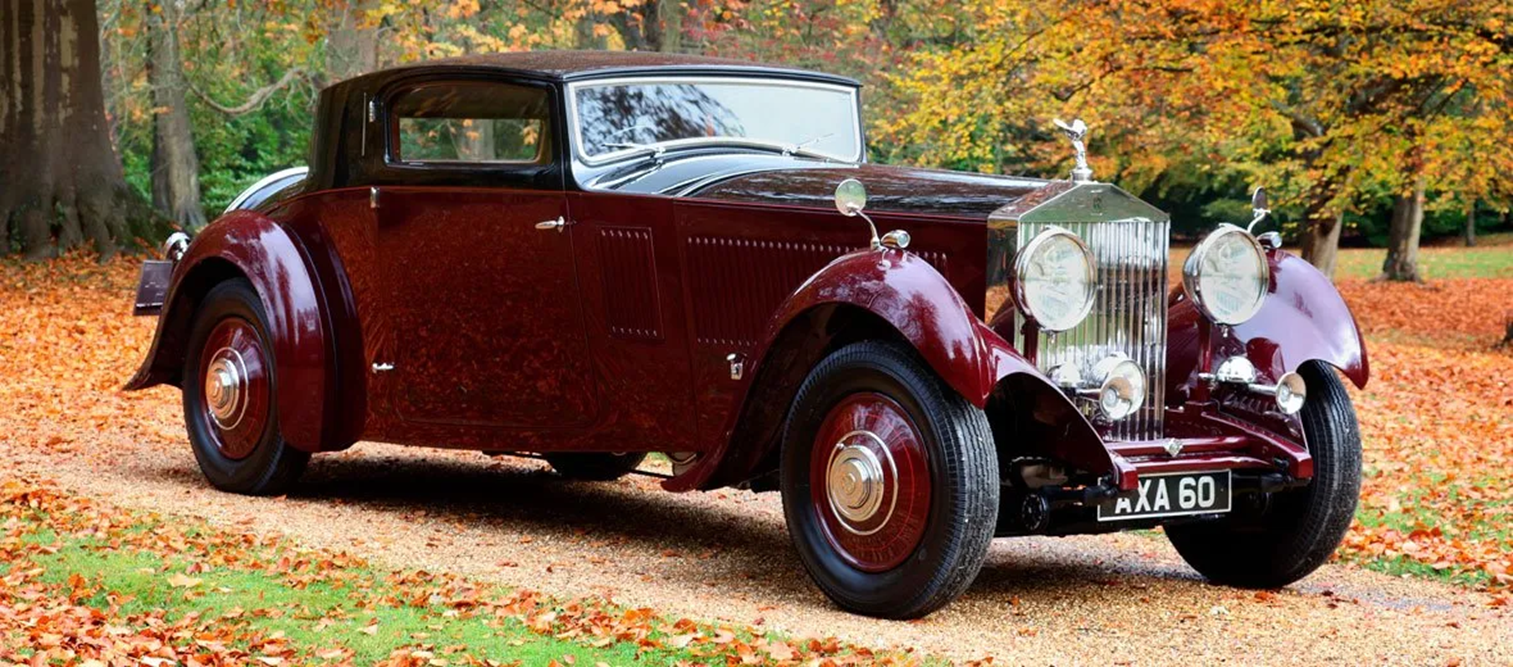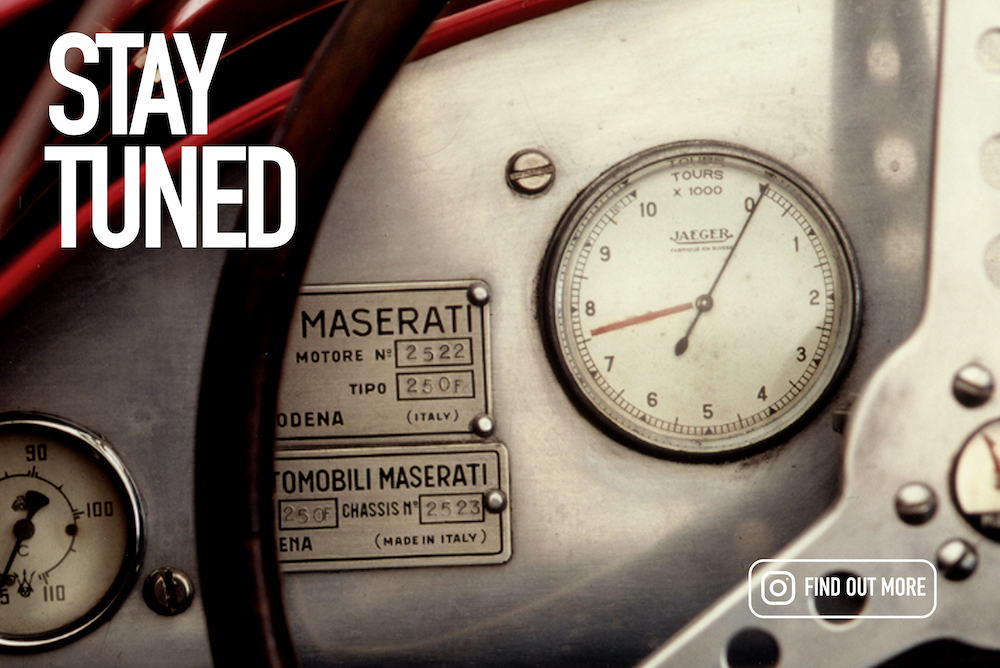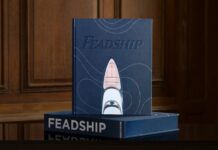In tribute to Rolls-Royce Motor Cars’ 120th anniversary this year, Salon Privé has gathered an eclectic set of the company’s most dazzling machines from the 20th Century, which will be displayed on the lawns of Blenheim Palace next month for the Salon Privé Concours presented by Aviva Private Clients.

Brought together in Salon Privé’s ‘Inspiring Greatness – 120 Years of Rolls-Royce’ Class, the cars represent the evolution of one of the world’s most renowned automobile manufacturers over many decades, from the model that first gifted the company its famous strapline, to a late-century Silver Spirit with an exquisite coach-built body.
The ‘Inspiring Greatness’ Class starts with one of Rolls-Royce’s most important break-through cars from the Edwardian period.
1911 40/50hp – ‘1701’, aka The Sluggard
The Autocar had already declared Rolls-Royce’s 40/50hp ‘the best car in the world’, after it reviewed the model in 1907. But rival company Napier was hot on its heels, and in 1910 managed to secure the RAC’s prestigious Dewar Trophy for completing the 799-mile London-Edinburgh-London trial in record time.
Claude Johnson, Rolls-Royce’s MD, was having none of it. In response, he commissioned an ‘experimental speed model’ with an underslung rear axle, and its 7428cc six-cylinder engine modified for higher performance. Chassis 1701 – also known as ‘The Sluggard’, in deference to an internal debate at Rolls’ about whether such a sporting car chimed with the company’s core market – was then prepared for the 1911 running of the London to Edinburgh Top Gear Trial.
Rolls-Royce’s experimental test driver, Ernest Hives, drove ‘1701’, and convincingly clinched the record from Napier. The car was then taken to Brooklands, where it achieved a top speed of 78mph, before making a second visit to the banked circuit in November that year after further modifications, and managed 101mph.
Despite the car’s success, reinforcing Rolls’ use of ‘The Best Car in the World’ in its advertising, its chassis design was not suitable for carrying heavy bodywork and never seriously developed. ‘1701’ subsequently passed through multiple owners before being discovered in a scrapyard in 1963 by Ken Neave, who embarked on one of several restorations. In its current ownership, ‘1701’ has undertaken several London-Edinburgh trips, as well as a recent 3,500-mile re-run of the 1913 Alpine Trial.
1923 Springfield Rolls-Royce Silver Ghost Pall Mall
With demand for its products growing in the New World, Rolls-Royce established the Springfield works in Massachusetts to assemble cars from kits exported from its Derby factory. Rolls’ management was impressed by the high quality standards of cars produced by Springfield, many of which were supplied with Rolls-Royce-catalogued bodies that could effectively be purchased ‘off the showroom floor’, rather than through an independent coach-builder.
And Salon Privé’s Silver Ghost is one such model. Chassis 77JH left the Derby factory in 1923, and was then assembled and supplied through Springfield works, with an enclosed Pickwick body, to Penn Motors of Philadelphia in June 1924. Like other US-built Rolls-Royces, 77JH’s electrics, ignition and road wheels used locally-sourced components, while features like its tubular bumpers and Bausch & Lomb headlights are also unique.
After being used as a demonstrator car, 77JH was sold to Robert M. Stein of Baltimore, who after two years requested a new Pall Mall tourer body be fitted. This body was taken from a 1921 Silver Ghost chassis 83UG, and came with the beaded-edge doors that 77JH still wears today, making it one of only two surviving, American-built Pall Mall tourer Dual Cowls.
Restored variously in the 1960s, ‘70s, and most recently in 2022/23, 77JH took second-in-class at Pebble Beach Concours d’Elegance in 2023, and received the Ansel Adams Special Award for the Most Desirable Touring Car in its Era. This year, it also achieved Best-in-Class at Amelia Island.

Salon Privé’s rakish Phantom II Continental was originally ordered by cotton Magnate and Conservative MP for Clapham, Sir John Leigh, in August 1933. According to its build sheet, chassis 42PY was ‘for use in the UK and Continent, mainly fast touring’, and its specification certainly supported that, with a lower rear axle ratio for better acceleration, stiffer road springs, a six-inch shorter wheelbase (to 144-inch) and three-inch lower exhaust.
London coachbuilder Freestone & Webb supplied the Phantom II’s low and sporty body, which did without running boards and side-mounted spare wheels, giving the perception of a longer and sleeker automobile. The body, with its origami-like crisp edges, also previewed what would become known as Rolls-Royce’s ‘razor edge’ design language, which would predominate in its post-war models.
After being sold in around 1938, and lying dormant during the war years, Anthony Gibbs purchased 42PY in 1952, after spotting the car at a London road junction and striking a deal with the owner on the spot. Five years later, the car was bought by American Arthur W. Seidenschwartz, who exported the car to Wisconsin, MO and kept it for the next 35 years. It was then bought by David Scheibel, who commissioned a full restoration of the car. In the early ‘90s 42PY became a multi-award-winner, gaining numerous trophies, including two in a single year at the 1992 Pebble Beach Concours d’Elegance. The car was purchased by its current owner in 2013, since when it has been restored, with a return to its original two-tone paintwork. In 2022, 42PY received Best-in-Show at the RROC, Burghley, as well as the Churchill Cup for Most Exceptional Design at Salon Privé the same year.
1953 Rolls Royce Silver Wraith by Hooper & Co.
One of the most elegant Rolls-Royce designs in this class, Silver Wraith chassis ALW40 was completed in 1952 and sent to Hooper & Co. to receive a seven-seat limousine body in early ’53. But this was no regular customer order, for Salon Privé’s car was then destined for the Geneva Show, where it was to be displayed on Rolls-Royce’s stand.
Returning to the UK, ALW40 then went to its first private owner, Alan Shirlaw of Hagley, West Midlands, where it remained until shortly before his death in 1966. Thereafter, the car’s history is unknown until, remarkably, it was discovered in Accra, Ghana some 14 years later. Repatriated to the UK in 1995, the Silver Wraith was restored by marque specialists Frank Dale & Stepsons, which then kept it on display until 2009.
Purchased by its current owners that year, ALW40 was recommissioned and reunited with its original registration plate, ‘LOA 604’. The car then became a show regular, with notable appearances at Prince Philip’s 90th Birthday Display and Drive Past in 2021, the RREC’s stand at NEC Classic Car Show 2018, Woodward Dream Cruise in 2019, and Salon Privé’s South Lawn display in 2022.
The Silver Wraith has also collected numerous awards over the last 13 years, including the RREC’s Most Elegant in Class on three occasions, the Young Judges’ 1st Place at Concours d’Elegance of America in 2019, and the Secretary’s Trophy and Best Car in Show at the 2021 Salon Privé Club Trophy presented by Lockton.
1954 Rolls-Royce Silver Dawn Drophead Coupé by Park Ward
When Rolls-Royce launched the Silver Dawn model in 1949, it was starting to see less demand from customers for coach-built bodies, and hence developed its own ‘general purpose’ design, which it shared with (initially) the Bentley Mk VI, followed by the Bentley R-Type.
Which makes Salon Privé’s Silver Dawn, with its Park Ward Drophead Coupé bodywork something of a rarity. Very rare, in fact, with this car – chassis STH91 – being the last one of five such cars produced from Park Ward’s design number 555, which featured a more elegant, and higher wing line.
Sold new to Mr. A.F Rogers in December 1954, the Velvet Green car, with Dark Green upholstery and a green, electrically-operated mohair hood underwent a major restoration by P&A Wood, which was completed in 1996. Since then, the car has been part of a private collection and only driven sparingly.
1965 Rolls-Royce Phantom V by HJ Mulliner Park Ward
Salon Privé’s Rolls-Royce Phantom V was supplied new as a hire vehicle to Patrick Barthropp on 25 May 1965 in a combination of Valentines Black over Velvet Green and Beige Hide.
Early in its life the car was featured in the hit movie Georgy Girl (1966) in its original colour combination, with the registration PPB 1. The car also featured in the Beatles’ film Let It Be (1970) and Performance (1970), then painted white and wearing the registration EUC 100C. The car would also feature in The Greek Tycoon (1978).
It was in 1967 that John Lennon purchased this Phantom V from the original owner (at that point changing the registration to EUC 100C). Thereafter, John had the car painted white, as he was trying his best to keep a low profile regarding his relationship with Yoko Ono. At this time, John also commissioned J P Falon Ltd to carry out additional works, including fitting a Webasto sunroof, a Phillips record player, an 8-track cassette player, a telephone system, a television and a supplementary rear console. Contrary to popular belief, the interior of the car was not trimmed in white, but Calico covers were used to change the appearance, as John and Yoko would not want use animal hides. However, further works on the car did include the infamous additional
chrome vents on the front of the car to accommodate a Tannoy system, as John had in his previous ‘Psychedelic Phantom.’
John sold EUC 100C to Allen Klein of Abkco records and the Beatles manager in September 1969 and it has remained in the family ever since, never leaving the UK. Allen Klein used the car to travel with clients and business associates, including the Rolling Stones, Mickie Most and Frank Sinatra.
After a period in storage, the Phantom V was sent for restoration with marque experts RR&B Garages who carried out a complete cosmetic and mechanical overhaul, and returned EUC 100C to the same specification it would have had under Lennon’s ownership.
After the car’s restoration, it won Best-in-Show at the Rolls-Royce Enthusiasts’ Club Rally in June 2016.
1988 Rolls-Royce Silver Spirit by Hooper & Co.
Largely based on the outgoing Silver Shadow II’s platform when it was launched in 1980, the Rolls-Royce Silver Spirit’s key improvement was its driveability – especially at higher speeds – thanks to a redesigned rear suspension arrangement.
However, since Rolls-Royce didn’t offer a two-door variant of the new Silver Spirit, Hooper & Co., a long-time provider of coach-built bodies for Crewe’s products, offered a post-factory conversion, costing more or less the same again as the new donor car.
Salon Privé’s example was originally ordered through London dealer Jack Barclay in June 1987, and then underwent a 16-month conversion at Hoopers. As well as changing the car’s Ebony-painted body from a four- to two-door design, there was the addition of a reduced-sized privacy rear window, wire wheels with white-wall radial tyres, a silver ‘GB’ badge, and a custom tan interior.
Finally delivered from Hooper’s works to its first owner in November 1988, this splendid tribute to late-20th century craftsmanship has covered just 45,000 miles and has recently undergone a full restoration.
Quote from Andrew Bagley, Concours Chairman of Salon Privé
“With Rolls-Royce celebrating its 120th year, Salon Privé was determined to mark the anniversary in style and bring together a group of cars and owners from across the globe that symbolised the passion, style and extravagance of this legendary brand.”
find more news here…










